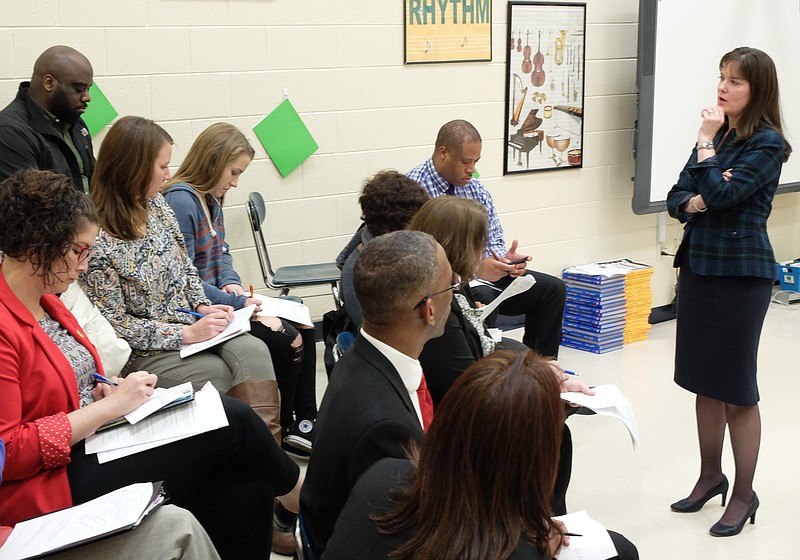Many, like me, are products and advocates of public education. However, many, like me, expect that public education's priority is to educate children year to year with measurable progress and promotion to the next grade.
In March 2016, a news article discussed a Tennessee Department of Education report identifying schools at risk and failing. Hamilton County was challenged to create "an absolute urgency" around those schools' failing performance, and to "consider whether the state, existing charter schools or other school operators in the county should intervene." The schools identified as most urgent were the same ones in question today, Brainerd High School, Dalewood Middle School, Orchard Knob Elementary, Orchard Knob Middle and Woodmore Elementary.
There is neither an intent to shame or humiliate students, parents or staff at any of those schools, but efforts to turn around those schools have largely failed. As the March 2016 article states, "Despite $10.6 million in grants to the five predominantly poor schools over the past three years, test scores have not made expected gains, student absenteeism - as high as 63 percent at one school - remains far above the state average, and less-effective teachers are present at higher rates than in similar schools elsewhere."
In the article, Times Free Press reporter Kendi Rainwater noted, "Under federal law, the state is required to intervene in the 5 percent of schools with the lowest academic achievement. Tennessee has 83 'priority' or 'iZone' schools."
So, more money was provided. More attention and focus were directed at those schools. Yet results didn't change.
In the article headlined "Progress at a standstill in Hamilton County's low-performing schools," $5 million was identified as unspent that should have been designated to these "iZone" schools.
In September 2016 coverage of Tennessee's Commissioner of Education Candace McQueen's participation in a forum hosted by state legislators from both political parties, it was noted that "Hamilton County's five priority schools have received $13 million in school improvement grants since 2013." What were the results of this specific infusion of funding? McQueen said the state was "not seeing the improvements we have seen with our other priority schools."
This activity and news reporting occurred as Chattanooga 2.0 was launched by a group of business and civic leaders, which added to the sense of urgency surrounding the need for reforms that would benefit the children attending those schools.
So, what's the progress? It's the last day of July in 2017; a new school year begins in a couple of weeks. The state's appeal for the Hamilton County Board of Education to choose between a state takeover or a shared partnership remains in debate, focused on process and funding.
In a July 16 report, Rainwater reported on McQueen's remarks from a series of local meetings on this "urgent" issue of five schools that have struggled for "more than a decade" in academics.
Failure to improve is the result of focusing on protecting a traditional approach to public education and rejecting other public school options like charter schools. That, folks, is the definition of insanity.
After millions of dollars spent on the same schools that socially promoted students who were not prepared, the answer clearly is not more of the same.
Robin Smith, a former chairwoman of the Tennessee Republican Party, owns Rivers Edge Alliance.
